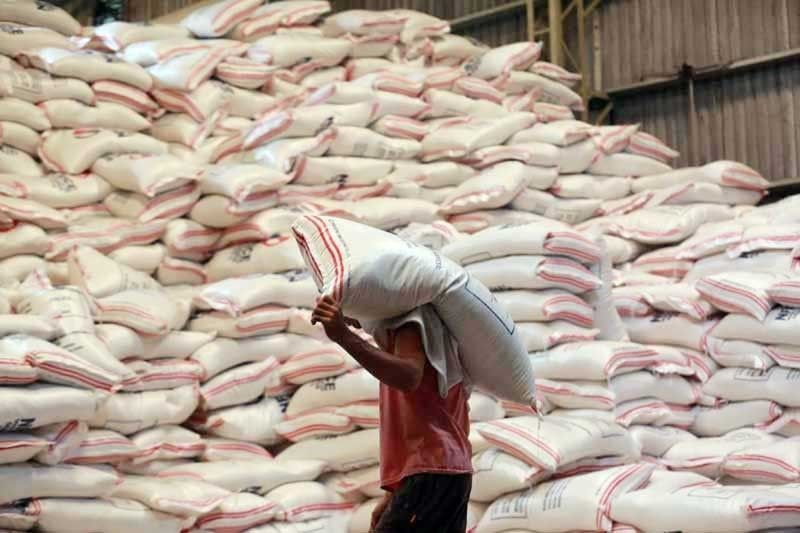Rice output target at risk from delay in RCEF release

MANILA, Philippines — The Department of Agriculture may miss its palay production target this year if the release of the Rice Competitiveness Enhancement Fund (RCEF) will be delayed, its top official said.
“We are banking so much on RCEF for the agriculture sector to bounce back this year. The release will have an immediate effect especially if it gets released before the start of the next cropping season,” Agriculture Secretary Emmanuel Piñol told reporters.
Under the RCEF, an initial P10 billion has been allocated as subsidy for rice farmers.
The rice tariffication bill is just awaiting the signature of President Duterte.
Since the national budget has yet to be approved, the release of the initial P10 billion is also hanging.
Piñol said the RCEF should be released before March to ensure that the effect would be felt within the year.
Otherwise, the DA will fail to hit its palay production goal of 20 million metric tons (MT) this year.
This will also affect the overall performance of the sector for 2019 as crops contribute almost half of the total agricultural production in the country.
“The RCEF should be released before the planting season by March. It is very critical for us because it will help boost production,” the DA chief said.
The Philippine Rice Research Institute (PhilRice) is also preparing for the rice tariff regime, saying cost-effective technologies should be generated for farmers to survive the expected influx of cheap rice from the international market.
Under the rice tariffication bill, PhilRice will annually receive P3 billion for six years which will be used for the development, propagation and promotion of inbred rice seeds to rice farmers.
The money will also be used for organizing rice farmers into seed grower associations.
“Although farmers’ adoption of high-quality seeds has increased from 48 percent to 58 percent, there are still much to be done,” PhilRice executive director Sailila Abdula said.
Local farmers are calling on President Duterte to veto the rice tariffication bill and for Congress to change certain provisions, particularly on the role of the National Food Authority.
The bill was already submitted to the Office of the President earlier this month and will lapse into law if not acted upon within 30 days.
Federation of Free Farmers (FFF) national business manager Raul Montemayor warned that the bill would expose the government to serious social and political risks in the future.
“The bill should focus only on the removal of volume restrictions on rice imports. This is all what we have to do under our commitments to the World Trade Organization,” Montemayor said.
“The issue of what happens to the NFA and the role of the government in rice trade must be addressed separately and only after a comprehensive study and following genuine consultations with the stakeholders,” he added.
The bill will remove all restrictions on rice imports and will allow any importer to bring in unlimited volumes of rice from abroad any time. The quantitative restrictions will be replaced with tariffs instead.
The economic team has maintained that lifting the QR and eventually flooding the market with cheap rice will bring down prices, and in turn decrease inflation.
But farmer groups believe otherwise, saying rice prices have already gone down and inflation has stabilized even while the import restrictions and NFA’s powers are still in place.
“The spike in rice prices last year was not because of the import restrictions. Private importers were given a quota of more than 800,000 metric tons but they did not fully avail of the quota,” Montemayor said.
FFF said importers would now only need to secure a food safety certificate from the Bureau of Plant Industry.
This is in contrast to the current system wherein the interagency NFA Council limits the volume of imports based on the estimated gap between supply and domestic consumption.
NFA’s power to license all players in the rice market, including traders and retailers, will also be eliminated.
The agency will also stop monitoring the rice trade and will lose its authority to apprehend rice traders and seize contraband stocks.
“Even NFA’s power to import rice will be removed if there is a domestic shortage since the agency will only be allowed to buy from local farmers for its buffer stocks. The buffer stocks can be released only during calamities and emergencies,” Montemayor said.
“The agency will most likely stop buying form farmers once it acquires sufficient buffer stocks even if palay prices are going down. In turn, cheap NFA rice will not be available in the market anymore,” he added.
- Latest





























